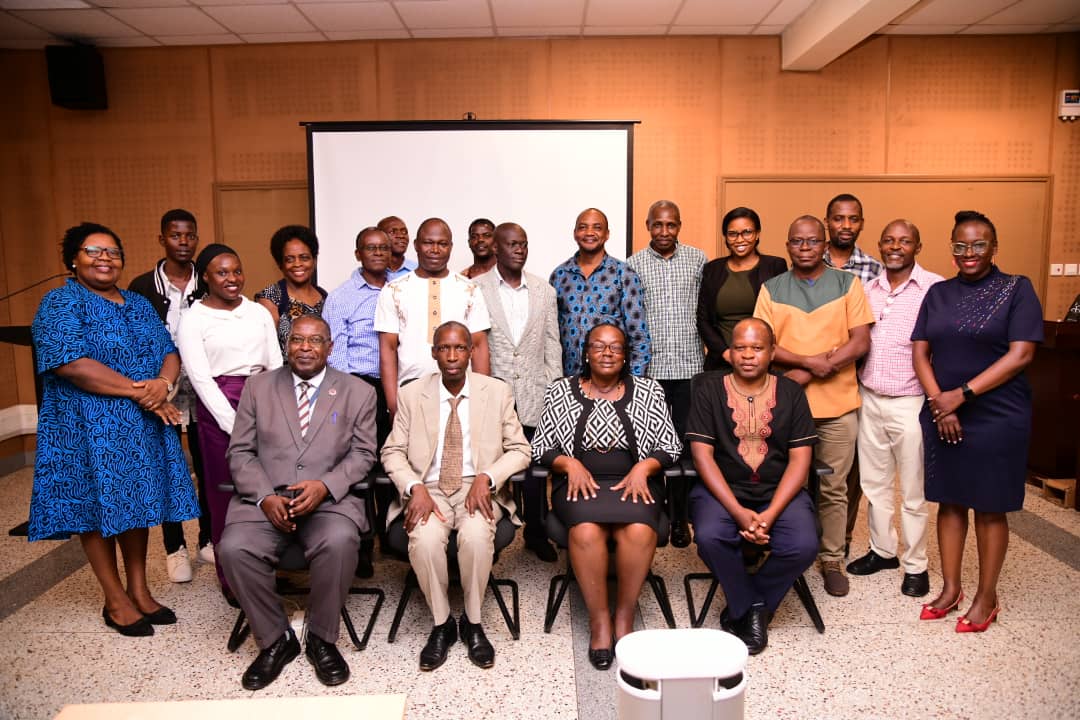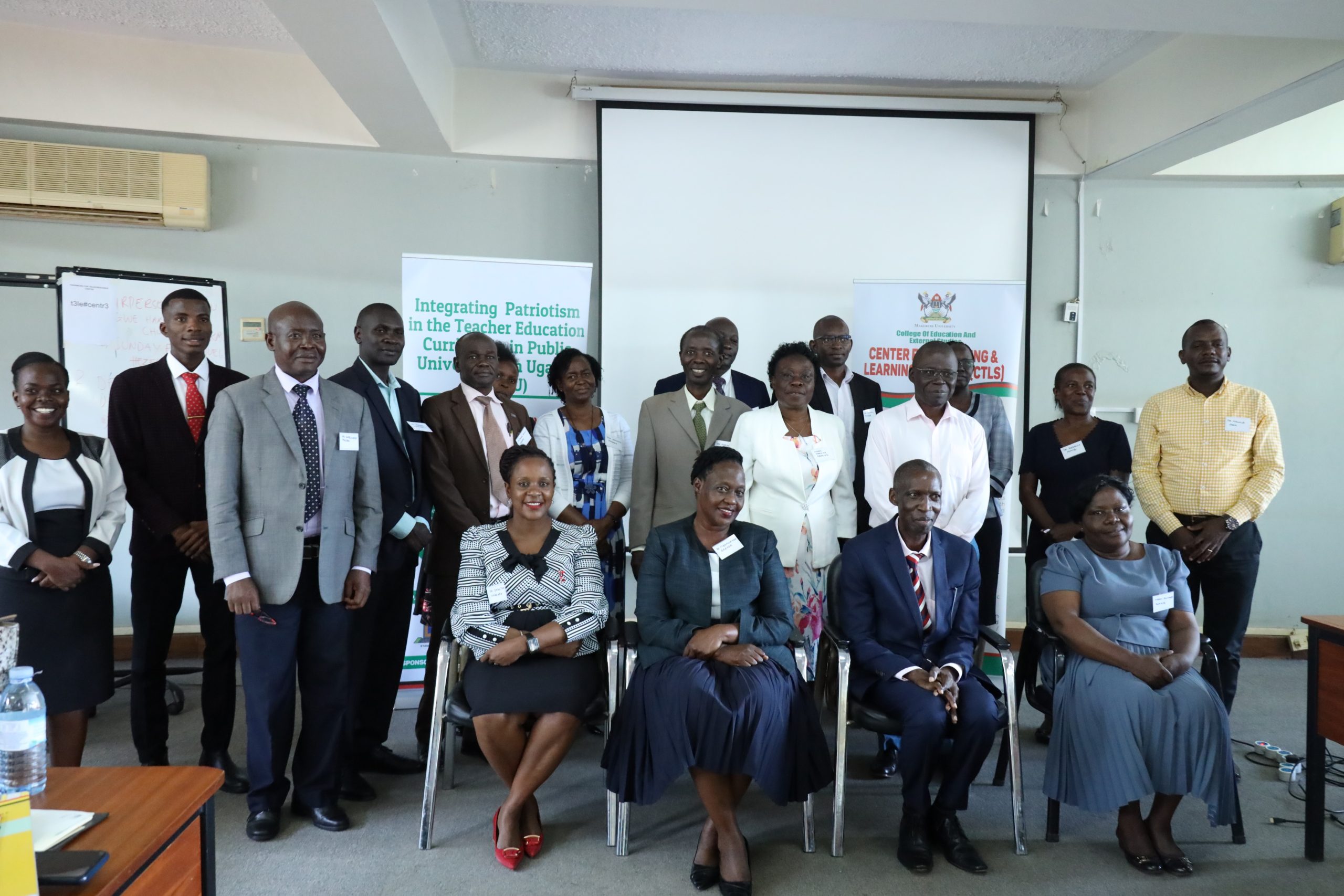A team of experts from Makerere University School of Education embarked on a study to increase on the employability and entrepreneurial skills of graduate teachers.
The team led by Assoc. Prof. Mulumba Bwanika Mathias the Principal Investigator(P.I), also Head of the Department of Humanities and Language Education, Mr. Mulindwa Ismael Director, Basic & Secondary Education – Ministry of Education and Sports (MOES), Mrs. Grace Baguma Director, National Curriculum Development Centre (NCDC), Dr. Marjorie S.K. Batiibwe Coordinator, Mathematics Education, Makerere University, Prof. Christopher B. Mugimu Professor of Curriculum Studies Makerere University, this initiative is funded by the Government of Uganda under the auspices of the Research and Innovations Fund (RIF).
On 8th October,2020 the team organized a workshop to disseminate finding of the research carried out since 2019.
Several stakeholders from academia, the National Council of Higher Education, National Curriculum Development Centre, Makerere University, the Ministry of Education and media were in attendance.
The study sampled 1,710 secondary school teachers to purposely establish, among other things, whether they had good employability and adaptability skills and interviewed 120 lecturers from eight Government universities training secondary school teachers, the study discovered that the current nature of teacher preparation in Uganda does not enable graduate teachers to attain competent content, pedagogical and professional knowledge, information and digital literacy, learning and life skills which are pertinent to the profession.
Assoc.Prof. Mulumba pointed out that majority of Secondary school teachers have not adopted use of 21st century skills for instance ICT for problem solving, citing an example that among the secondary school teachers interviewed during the study majority were unaware that the NCDC had uploaded training material about new secondary curriculum on their website, most were still waiting for the NCDC team to send a team to their schools to orient them on the changes of the curriculum.
Dr. Batibwe Majorie among various findings pointed out that a lot of emphasis is placed on attaining content and not the skills to deliver that content. I.e, there are more course units on content although the minimum graduation load is 140CUs, majority of the education students graduate with more than 180CUs, too many course units arise out of two teaching subjects and this pauses a hectic load on the student teachers.
support to the project.
University content in some subject areas is not aligned to/with secondary school content.
Teachers predominantly use teacher-centered methods which are devoid of hands-on experience
No meaningful assessment is made other than tests and examinations for reproduction of concepts
Minimal use of ICT due to shortage of skills and ICT infrastructure.
Teachers are theoretically trained, that is, in the absence of the real context in which they will professionally operate
Student teachers are not prepared to acquire literacy, learning and life skills; so, they cannot teach them to their own students
School practice comprises two components namely training and assessment, however, it heavily relies on assessment and less on training
Courses offered by student teachers are beyond the minimum graduation load All students
There is no formal communication mechanism between universities and secondary schools
The university content needs to be aligned with secondary school content for all secondary school subjects during teacher training, teachers and lecturers need to adopt learner-centered teaching methods and professional knowledge courses have to be harmonized across all public universities
Secondary school teachers require learning, literacy, life, efficiency and curiosity skills in order to teach effectively.
For secondary school teachers to teach effectively, their preparation (theoretical and practical) in teacher education institutions should be aligned to secondary school curriculum.
Teacher preparation could best be carried out if there is a mechanism of communication (and feedback) between teacher training institutions and secondary schools.
The teacher education curriculum (Content, pedagogical and professional courses) in all public universities should be harmonized for effective preparation of teachers.
Employability and entrepreneurial skills should be made compulsory in teacher preparation and should be emphasized in each and every subject area.
There is need to streamline the preparation of teachers in all public universities so as to train competent secondary school teachers.
There is a need to develop a communication framework to enable feedback and interaction between public universities and secondary schools.




